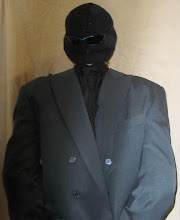What would you do if you were given a choice similar to the one proposed in movie The Box? If you accept, you will receive a million dollars, and then, someone in the world, probably someone you don't know and would never meet, will die. Remember that they may well be a 'bad' person, or they might be about to die anyway, or in them dying you might save the lives of many other people who they might have inadvertently killed for example in a car crash. However, they might be a family man who is the sole income earner for his 5 kids and wife, or it could be a human rights activist or some other such person.
What about the potential from Death Note; If you write a name in the book, they will die that night. Who would you choose? Would you choose people that you really really don't like, or would you choose people that you deem as evil, and if so, then who would you choose and how would you define evil? or would you just never use your power.
What if you were a 'mutant' such as in X-men? Would you work to defend those who hated you? or would you defend yourself from them? What if your choice (either way) meant alienating some people who you have had as friends or even making them enemies.
What about the choices that are made in the Sin City story 'The Yellow Bastard'? Could you choose to die to save the life of someone else - who you probably didn't know very much at all? or if you don't want to answer that one take the choice featured in 'The Big Fat Kill', another Sin City story - could you kill many people to save the lives of others?
What about some choices that are more likely to happen; chances are that we will never find ourselves in any of these situations so how about some plausible ones.
How about a simple one to start with. What if when receiving change for something you slipped it in your pocket without counting, only to find out 15 minutes later that you had been given an extra couple of dollars? What about if you had been short changed by the same amount?
What if you found a wallet on the side walk that had a $50 in it? What if there was no identification? What if there was a couple of hundred dollars in it and no identification?
What if a close friend of yours was assaulted and you found out who did it. What would you do? What if after you notified the police, they managed to get off all charges? What if it was a friend of yours?
Just something to ask yourself.
In other news, it is the beginning of the month formally known as November. Movember is a charity to raise both funds and awareness for two issues in men's health, Depression and Prostate cancer, both of which are ignored by men due to the stigma attached by it and the desire to appear bigger or tougher than you are. Get behind it guys.
What about the potential from Death Note; If you write a name in the book, they will die that night. Who would you choose? Would you choose people that you really really don't like, or would you choose people that you deem as evil, and if so, then who would you choose and how would you define evil? or would you just never use your power.
What if you were a 'mutant' such as in X-men? Would you work to defend those who hated you? or would you defend yourself from them? What if your choice (either way) meant alienating some people who you have had as friends or even making them enemies.
What about the choices that are made in the Sin City story 'The Yellow Bastard'? Could you choose to die to save the life of someone else - who you probably didn't know very much at all? or if you don't want to answer that one take the choice featured in 'The Big Fat Kill', another Sin City story - could you kill many people to save the lives of others?
What about some choices that are more likely to happen; chances are that we will never find ourselves in any of these situations so how about some plausible ones.
How about a simple one to start with. What if when receiving change for something you slipped it in your pocket without counting, only to find out 15 minutes later that you had been given an extra couple of dollars? What about if you had been short changed by the same amount?
What if you found a wallet on the side walk that had a $50 in it? What if there was no identification? What if there was a couple of hundred dollars in it and no identification?
What if a close friend of yours was assaulted and you found out who did it. What would you do? What if after you notified the police, they managed to get off all charges? What if it was a friend of yours?
Just something to ask yourself.
In other news, it is the beginning of the month formally known as November. Movember is a charity to raise both funds and awareness for two issues in men's health, Depression and Prostate cancer, both of which are ignored by men due to the stigma attached by it and the desire to appear bigger or tougher than you are. Get behind it guys.
